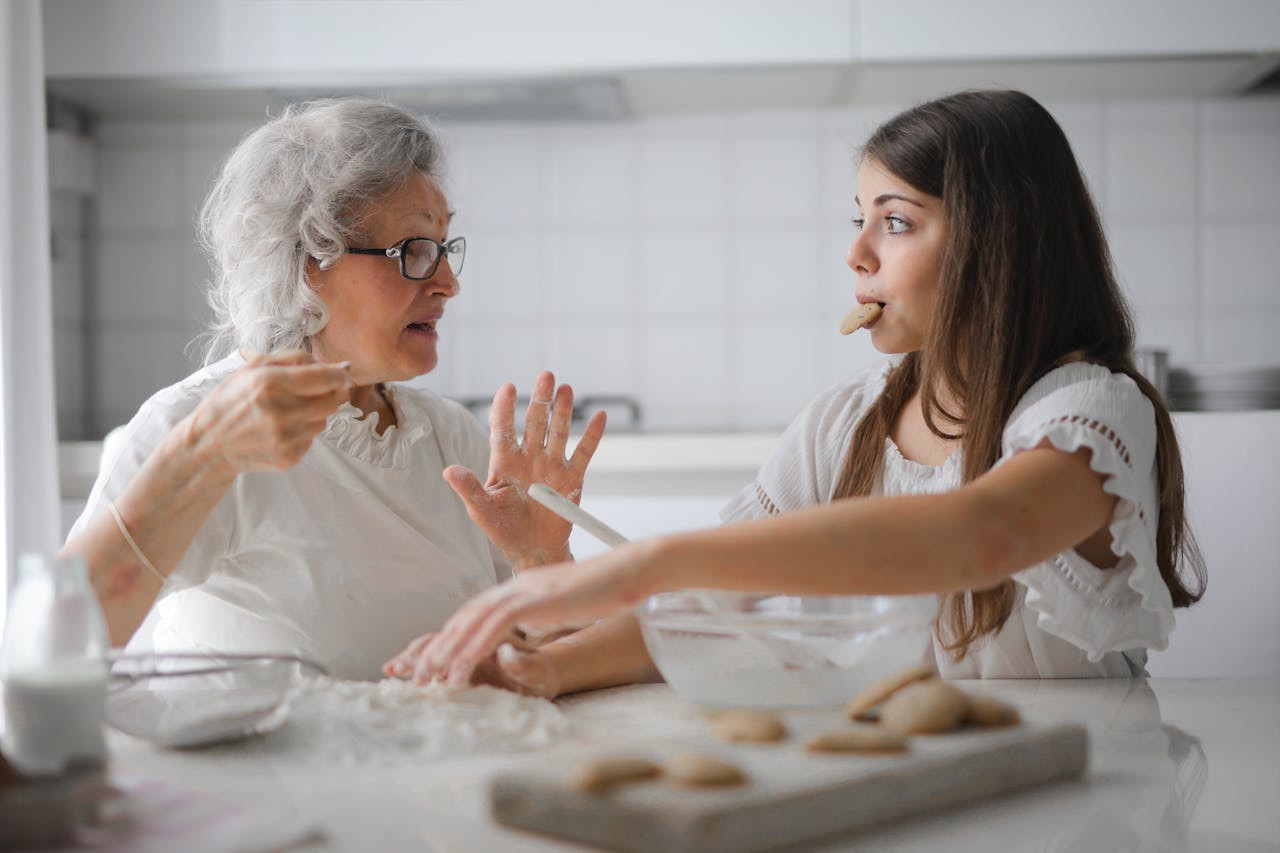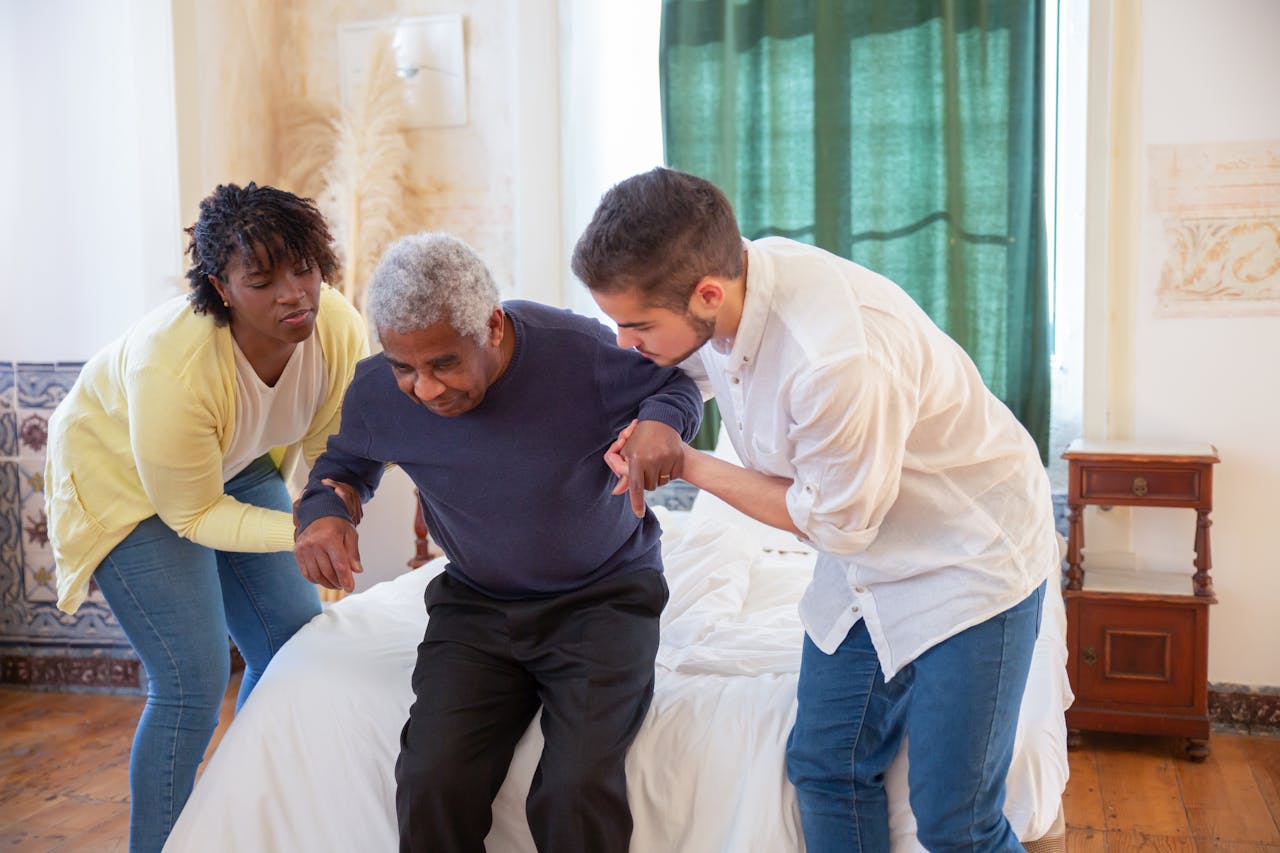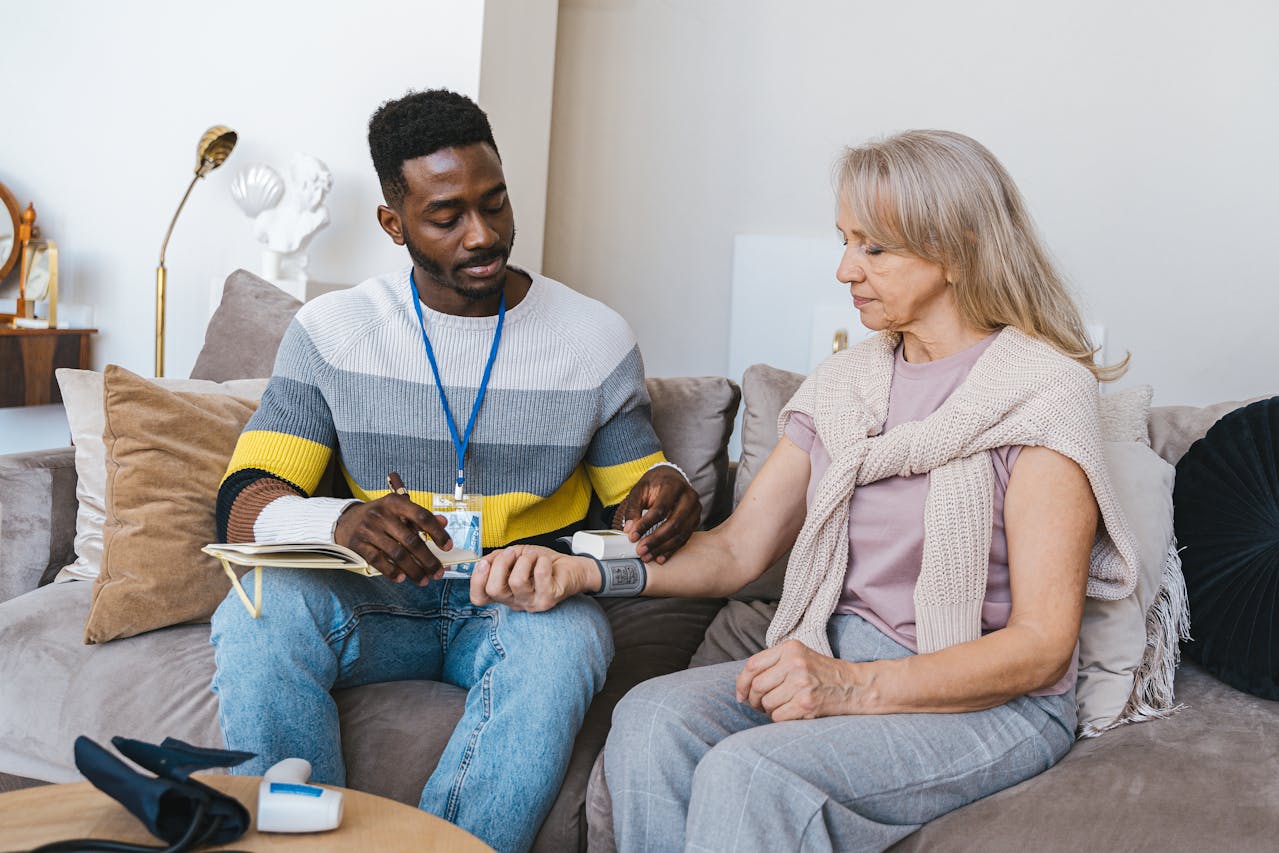Companionship Care

What is companionship care?
Many older people want to remain in their own home for as long as possible but can sometimes feel lonely or isolated. This is where companionship care makes a real difference. Companionship care services provide friendly companionship, emotional support, and practical help so that an elderly loved one can continue to live a fulfilling and independent life.
Unlike residential care, companionship care at home focuses on helping people stay connected with their local community, maintain hobbies, and live life on their own terms. For those needing round-the-clock support, our live-in care and 24 hour care at home services provide added reassurance while still allowing loved ones to remain in familiar surroundings. Whether it is for just a few hours a week or longer term, companionship care gives families peace of mind that their loved one has someone by their side.
Looking for a trusted elderly companion? Careline provides friendly support at home.
The benefits of companionship care
Social and emotional support
One of the main benefits of companionship care services is the social and emotional support they bring. A companionship carer can provide a listening ear, offer meaningful conversations, and encourage social interaction. Having a dedicated companion for elderly individuals helps to combat loneliness and improve emotional well being.
Maintaining independence
Companionship services allow an older person to continue enjoying the things they love. Whether it is attending social events, joining social clubs, or taking shopping trips, a friendly companion offers practical help and companionship support. This encourages elderly people to live life more independently and feel valued.
Practical everyday tasks
A companion carer can also help with domestic services such as meal preparation, cooking favourite meals, light household chores, or even assisting with public transport to appointments. Having this type of dedicated support makes life easier and improves overall health and quality of life.
Peace of mind for family members
For family members, companionship care provides reassurance that a loved one has constant company and support. Knowing a professional carer is spending time with your loved one reduces worry and strengthens family bonds.
Types of companionship care services
Visiting companionship care
Some people only need help for a few hours each week. Visiting care offers flexible companionship support that fits around daily life. Carers can provide companionship, prepare meals, and help with everyday tasks while also offering emotional support.
Social companionship care
Companionship care at home often includes encouragement to join social engagement opportunities, attend social events, or simply spend time enjoying hobbies. This kind of social and emotional support helps to combat social isolation and boost mental health.
Live in companion care
For those who would benefit from round the clock support, a live in carer can provide both personal care and companionship. A live in care service means a professional carer stays in the home, offering constant support, social interaction, and companionship for elderly individuals who may otherwise feel lonely. Live in care is also a cost-effective alternative to moving into a nursing home.
Companion care alongside personal care
Some people need both personal care, dementia care and companionship. In these cases, a care plan can combine personal care assistance, such as help with bathing or medication reminders, with companion care services. This ensures both physical health and emotional well being are supported.
Find out how our companionship carers can support you.
Who can benefit from companionship services?
Elderly loved ones
Elderly companionship can make daily life brighter for an elderly loved one who lives alone. Companionship for elderly people helps reduce feelings of loneliness and supports emotional well being.
Family members and carers
Companion care also offers relief for a primary carer. A respite carer can step in to provide company and support, giving family members time to rest whilst companionship care continues for their loved one.
Older people in later life
Senior companion care is especially helpful for an older person who may no longer drive, or struggles to keep up with their social life. Companionship services for elderly people make it easier to stay active, join social clubs, and engage with the local community.

What does a companionship carer do?
A companionship carer or home care companion is more than someone who helps with everyday tasks. They provide emotional support, companionship, and dedicated support. Some of the ways a companion care worker can help include:
- Providing company through meaningful conversations and friendly companionship
- Helping with meal preparation and shopping trips
- Supporting social interaction and attending social events together
- Encouraging hobbies, interests, and social engagement in the local community
- Offering a sympathetic ear and reassurance to boost emotional well being
Whether through frequent visits or live in companions, companionship care ensures your loved one has the right level of support.
Trusted live-in companion care for elderly independence
Arranging companionship care
Careline offers fully managed companionship care services that are tailored to each person’s individual needs. After discussing what is companionship care and the support required, a care manager will put together a personalised care plan. This ensures companionship support is delivered in a way that meets both personal care needs and emotional well being goals.
Families can arrange companionship care at home for just a few hours each week, frequent visits, or a live in companion wanted for longer term support. Options include visiting care, live in care, or a mix of both, depending on the needs of the elderly loved one.


Why choose Careline for companionship care?
At Careline, we believe companionship is about creating meaningful connections and improving quality of life. Our expertly trained carers provide companionship care services that are tailored to each person. Whether it is helping with everyday tasks, offering social interaction, or simply being a friendly companion, Careline carers focus on well being and human connection.
With a fully managed service, families have peace of mind knowing their loved one has dedicated support, consistent care, and professional carers available whenever needed.
Careline provides caring companions for seniors.
Final thoughts
Companionship care is more than just providing company. It is about giving elderly people the chance to live life in their own home, surrounded by the things they love, while having a companion who offers emotional support, practical help, and social interaction.
For families, it means reassurance that a loved one has someone to talk to, to spend time with, and to share meaningful connections. Whether through visiting companionship care, a live in carer, or tailored companion care services, Careline helps improve quality of life in later life.

FAQs
What does a live-in companion do for the elderly?
A live in companion for elderly people provides both companionship and support with everyday tasks. This may include preparing meals, helping with shopping trips, offering meaningful conversations, and encouraging social interaction. A live in carer can also support with emotional well being and provide reassurance throughout the day and night. By living in the same home, the companion ensures constant company and a sense of security for the elderly loved one.
How can companionship care help the elderly?
Companionship care helps elderly individuals in several ways. It provides emotional support, combats social isolation, and encourages a more fulfilling and independent life. A companionship carer offers companionship support, friendly companionship, and practical help with daily tasks. This allows an older person to remain in their own home, stay connected with their local community, and enjoy a better quality of life.
What is the difference between companionship care and personal care?
The main difference between companionship care and personal care lies in the type of support offered. Companionship care focuses on providing company, social engagement, and emotional well being, helping people feel valued and less lonely. Personal care, on the other hand, includes practical support with washing, dressing, and other aspects of physical health. Many care plans combine both companionship and personal care so that an elderly loved one receives complete care and support at home.